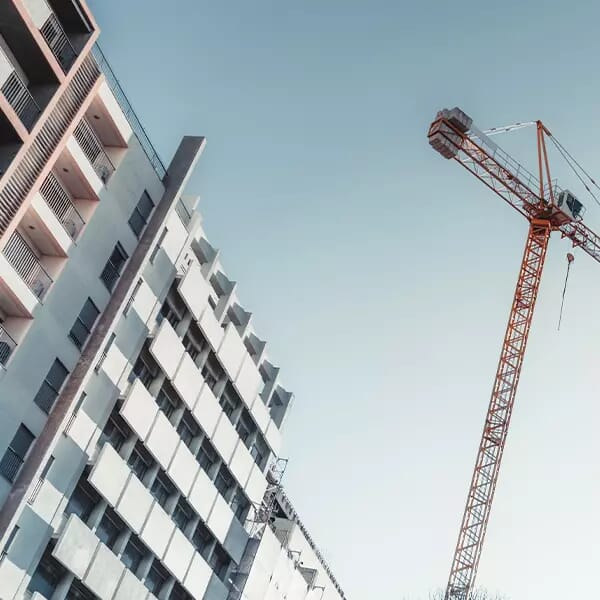 Credit: Nazir Amin / Flickr
Credit: Nazir Amin / FlickrSpanish Real Estate Market Valuations - Price drops & investment strategy adjust
July 23, 2020Real Estate
GRI Club Spain members gathered online to discuss the pandemic impacts felt by Spanish real estate market so far, highlighting investors' strategies for upcoming asset and portfolio valuations, discount expectations and repricing of the market.
Where are the prices headed on market valuations? Any financing from lenders for distressed deals? Some suspect a distressed asset wave might be on its way, however, until now we have not seen much movement on prices and discounts. Especially residential and commercial appraisals could benefit from lockdown easings. Thus, understanding asset values, exit strategies and resulting impacts on the cost of capital will be more difficult in the short term.
These and several other issues were discussed on 16th July with key industry leaders who shared sentiments and experiences. While the Spanish real estate market is trying to adapt to the pandemic impacts on the economy, investors gear up for upcoming asset and portfolio valuations, expecting discounts and repricing of the market. Dry powder to capitalise on potential distressed opportunities will play a major role in the recovery. Check below for a general overview of the discussion and main asset classes:
Despite a potential great depression and much uncertainty surrounding the markets, Spain has the strength to get back up. The Spanish real estate market is highly dependent on foreign capital and throughout last year record levels of capital were raised in Europe. Large parts of the capital have not yet been invested, which could restart the economy in the upcoming months. Repricing has already begun in the sectors most affected by the lockdown (hospitality, shopping and retail) and in the coming months, pricing opportunities may appear on the markets. Investors will need to be proactive and alert since real estate remains an attractive asset class in the long term.
Overall, the members’ perception is that the office and logistics sectors should show more resilience than other asset classes in the upcoming months. Location will play a major role in lowering vacancy rates for both asset classes. Most have higher expectations for the logistics sector, which has been positively impacted by the growth of e-commerce.
For the hotel and retail sectors, members’ consensus was that the situation is more complicated opposed to other asset classes, since most are (partially) closed. The hospitality sector might be a great opportunity should the recovery be as fast as expected, but retail might suffer more with new valuations. The residential sector has been impacted with some developments that are on hold and less sales in the last months compared to last year, but members believe that, with pent-up demand, the next few months might be different with new opportunities for the BTR market.
On the lending and financing side, banks are becoming more selective and are busy restructuring existing debt terms and covenants. Financing is less available and more expensive, having a huge impact on transaction volumes, which are already in decline. Land values might decrease in the upcoming months, but it is too early for price-discovery. The main players need to remember property fundamentals and be cautious in their decision making. In the long-term, should we see a quick recovery in the next few years, the resilient assets and developments that are part of long-term strategies will potentially be less affected or even not affected at all. All asset classes are suffering in the short-term and it will be hard to predict cycle stages in the short to medium term. Although, a sudden change will happen in a new phase for the real estate market.
The debate was moderated by José Antonio de Pedro Cuadrado (Commuty) and attended by Federico Esnarrizaga (Knight Frank), Félix Llorente Sanz (Wilcox), Fernando Ramírez de Haro (Savills Investment Management), Javier Beltrán de Miguel (CG Capital Europe), Matteo Gralin (Savills Investment Management) and many others.
By Ludwig Menke
Where are the prices headed on market valuations? Any financing from lenders for distressed deals? Some suspect a distressed asset wave might be on its way, however, until now we have not seen much movement on prices and discounts. Especially residential and commercial appraisals could benefit from lockdown easings. Thus, understanding asset values, exit strategies and resulting impacts on the cost of capital will be more difficult in the short term.
These and several other issues were discussed on 16th July with key industry leaders who shared sentiments and experiences. While the Spanish real estate market is trying to adapt to the pandemic impacts on the economy, investors gear up for upcoming asset and portfolio valuations, expecting discounts and repricing of the market. Dry powder to capitalise on potential distressed opportunities will play a major role in the recovery. Check below for a general overview of the discussion and main asset classes:
Summary
The meeting started with a market presentation from Savills Investment Management showing the expectancy of economic recovery and general numbers of capital aiming at European CRE, sales volume by sector, the presence of cross-border investors and the impact felt so far by the real estate market. The expectancy is that the economic recovery should be quick in the next year, with record levels of dry powder capital aiming at European compared to the last years, the majority coming from cross-border investors looking into Spain. The investment style preferences of such capital was core, followed by value added and opportunistic, but value add has recently been gaining more preference. The Q2 2020 suffered a drop compared with the first quarter of this year, with impacts felt on sales volume per sector. In comparison from 2015 - 2019, Q1 2020 saw an increase in retail sales, followed by other asset classes (senior housing & care, dev site and self storage) and a decrease in sales for industrial, hotel, apartment and office sectors.Despite a potential great depression and much uncertainty surrounding the markets, Spain has the strength to get back up. The Spanish real estate market is highly dependent on foreign capital and throughout last year record levels of capital were raised in Europe. Large parts of the capital have not yet been invested, which could restart the economy in the upcoming months. Repricing has already begun in the sectors most affected by the lockdown (hospitality, shopping and retail) and in the coming months, pricing opportunities may appear on the markets. Investors will need to be proactive and alert since real estate remains an attractive asset class in the long term.
Overall, the members’ perception is that the office and logistics sectors should show more resilience than other asset classes in the upcoming months. Location will play a major role in lowering vacancy rates for both asset classes. Most have higher expectations for the logistics sector, which has been positively impacted by the growth of e-commerce.
For the hotel and retail sectors, members’ consensus was that the situation is more complicated opposed to other asset classes, since most are (partially) closed. The hospitality sector might be a great opportunity should the recovery be as fast as expected, but retail might suffer more with new valuations. The residential sector has been impacted with some developments that are on hold and less sales in the last months compared to last year, but members believe that, with pent-up demand, the next few months might be different with new opportunities for the BTR market.
On the lending and financing side, banks are becoming more selective and are busy restructuring existing debt terms and covenants. Financing is less available and more expensive, having a huge impact on transaction volumes, which are already in decline. Land values might decrease in the upcoming months, but it is too early for price-discovery. The main players need to remember property fundamentals and be cautious in their decision making. In the long-term, should we see a quick recovery in the next few years, the resilient assets and developments that are part of long-term strategies will potentially be less affected or even not affected at all. All asset classes are suffering in the short-term and it will be hard to predict cycle stages in the short to medium term. Although, a sudden change will happen in a new phase for the real estate market.
The debate was moderated by José Antonio de Pedro Cuadrado (Commuty) and attended by Federico Esnarrizaga (Knight Frank), Félix Llorente Sanz (Wilcox), Fernando Ramírez de Haro (Savills Investment Management), Javier Beltrán de Miguel (CG Capital Europe), Matteo Gralin (Savills Investment Management) and many others.
The GRI Club Real Estate agenda in Spain
The GRI Club Real Estate Spain eMeetings agenda for 2020 is now available. Know what's ahead.By Ludwig Menke



